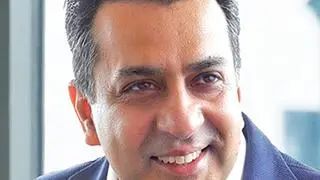The spectrum payment moratorium announced by the Centre on Wednesday may help telecom operators, especially Vodafone Idea, to tide over near-term liquidity issues, but it may not move the needle in terms of improving the industry’s overall financial situation.
For spectrum bought via auctions, operators have the option of paying 25-50 per cent of the bid amount upfront to the government, with the remaining amount payable over 16 years (post an initial two-year moratorium), including 9.3-10 per cent rate of interest. This repayment amounts to $0.5 billion/$1 billion/$1.7 billion annually for Reliance Jio/Bharti/Vodafone Idea.
“With this announced two-year moratorium on such payments (in FY21 and FY22), Bharti and Vodafone Idea can potentially save $2 billion and $3.3 billion respectively over this period, amounting to 41 per cent and 52 per cent of their respective AGR-related liability. We do note that on this unpaid amount over two years interest will accrue, and thus the spectrum moratorium will not impact our implied value for the stocks,”said a report by Goldman Sachs Equity Research.
Also read:₹42,000 crore relief for telcos on spectrum fee payment
“While this moratorium helps near-term liquidity for telcos, especially Vodafone Idea Limited, we do not see this improving balance sheet leverage the company, which stood at 20x (net-debt-to-EBITDA) as of September 2019. For Bharti, this moratorium will help better meet any potential AGR related liability, in our view,” it added.
‘Uncertainty prevails’
According to analysts at Citi Research Equities, the policy decision by the Centre was disappointing as the deferrals would be NPV-neutral, i.e., there is no change in the applicable interest rates and future instalments would be correspondingly revised upwards and equally spread over the remaining instalments due to be paid by the telcos without any change to the time period specified.
“While the moratorium on spectrum payments, combined with the recent announcement by all 3 companies to raise prices going forward should help Vodafone Idea tide over its delicate cash flow situation, uncertainty prevails on two other key relief measures sought by the companies, viz.: 1) reduction in recurring levies (e.g., licence fees) and 2) reduction in AGR-related liabilities (through extension of payment timelines as well as waiver of interest and penalties that constitute ~75 per cent of the amounts payable),” analysts at Citi said.
While deferment of spectrum auction payment is in line with analysts’ expectations, no decision on license fees reduction is clearly negative.
Also read:All you wanted to know about AGR
“On AGR, we believe the telcos are likely to approach SC for relief. We note that if the Vodafone Idea and Bharti Airtel face challenges in paying the annual spectrum payment of Rs 120 billion and Rs 60 billion respectively. Then it will be more challenging for them to pay AGR dues of Rs 530 billion and Rs 356 billion immediately,” said Credit Suisse.
Analysts are expecting additional measures including a moratorium on AGR dues for the next two years, aiding cash flows. A reduction in license fee and an extension of IUC are also likely.
Tariff hike
Meanwhile, all three operators have announced that they will increase prices in December, which will improve their revenue.
“We currently factor a 20 per cent hike in early FY21 in our estimates. We expect the reliefs to allow Vodafone Idea to do a basic 4G rollout but still lag peers, with market share falling to <15 per cent by end-FY21 (Bharti at 35 per cent, Jio at 45 per cent). Even with the reliefs, AGR dues are a drag on equity and will affect operations. The price announcement is positive, but given high leverage, we expect the 4G rollout to be lower than peers, with Vodafone Idea losing market share. There could be upside to the stock if the government reduces AGR dues by waiving the penalty or interest on the dues,” said analysts at Jeffereis
“Given sector stress and government focus, we expect the tariff hike to be sustained for the next few months. We consider Vodafone Idea limited to be the biggest beneficiary, but overhang from the AGR (adjusted gross revenue) case still puts a question on long-term recovery. We find Bharti Airtel to be the best telco to play this tariff hike,” said a report by Bank of America Merill Lynch.








Comments
Comments have to be in English, and in full sentences. They cannot be abusive or personal. Please abide by our community guidelines for posting your comments.
We have migrated to a new commenting platform. If you are already a registered user of TheHindu Businessline and logged in, you may continue to engage with our articles. If you do not have an account please register and login to post comments. Users can access their older comments by logging into their accounts on Vuukle.